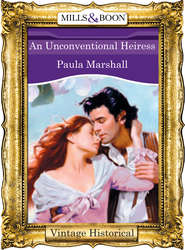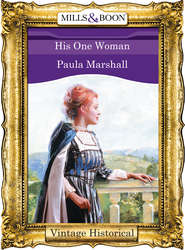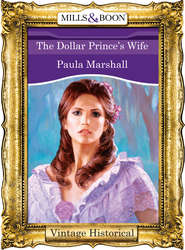По всем вопросам обращайтесь на: info@litportal.ru
(©) 2003-2024.
✖
An Unconventional Duenna
Настройки чтения
Размер шрифта
Высота строк
Поля
“For goodness sake, Athene,” she was saying, “if you must accept this offer of a London Season from Mrs Tenison, I must beg you to be careful. It may be my own sad experience which is affecting my judgement, but I should not wish you to end up as I have done—a lonely woman in a country village. I would much rather that you stayed with me than risk that.”
The country village to which Mrs Charlotte Filmer referred was Steep Ride, where she and her daughter lived in what was little more than a cottage, ambitiously called Datchet House. Steep Ride was pleasantly situated in the wooded neighbourhood of Steepwood Abbey, not far from the River Steep and its tributary which ran through the Abbey grounds.
Mrs Filmer was, not without reason, looking anxiously at her daughter. Alas, Athene was not only clever, but she was also determined and wilful—one might almost call her headstrong! In that she was the opposite of her mother, who was gentle and retiring, and whose one lapse from the straight and narrow path of virtue had been cruelly punished. In her first and only Season the young man whom she had loved had betrayed her, and though she called herself Mrs she had never been married. Her one consolation lay in her pride in her beautiful child.
“Dear Mama,” said Athene, leaning forward affectionately and kissing her anxious parent, “I shall only be going as a mixture of a companion and a friend for my dear old schoolfellow, Emma. You may be sure that Mrs Tenison will keep a firm eye on both of us. Depend upon it, she will not allow me to outshine Emma, since her intention is to secure a good match for her.”
“She will have no trouble doing that,” fretted Mrs Filmer. “What I do not understand is why she isn’t engaging some decent, middle-aged woman to look after her rather than trying to persuade you to be her companion. After all, you are not very much older than Emma and might be considered to need a guardian or a chaperon yourself.”
“Now, Mama, you know as well as I do what a timid little thing Emma is. The sort of dragon you are describing would extinguish her, whereas I am her good friend and guardian from her school-days who protected her when she needed protection. I am also old enough for her to look up to me, but not so ancient and stern that I frighten her. I shall stand between her and the Tenisons’ sponsor, Lady Dunlop, who is somewhat of a dragon. Besides, would you deprive me of the delights of a London Season because you were unfortunate? You were young and inexperienced in the ways of the world, whereas I have had the benefit for the last few years of being made aware by you of the traps which await the innocent in the often cruel world of the ton.”
“There is that,” sighed her mother. “Nevertheless…”
“Nevertheless nothing,” said Athene firmly. She had the advantage of always having won her arguments with her mother in the past. Her own internal reaction when Mrs Tenison had called earlier that afternoon with her exciting proposal had been: At last! Here is the chance I have always wished for—and so soon, before I have reached my last prayers.
“You might not wish to take up this offer, my dear, once you have thought it over. You will, in effect, be one of the Tenisons’ servants, little better than a governess. You will be kept in the background. I know that Mrs Tenison said that she would provide you with a suitable wardrobe, but you may be sure that it will not be either becoming or fashionable. I am sure that she will not want you to rival Emma…”
“Now, how could I do that,” wondered Athene, “when Emma is all that is fashionable and I am not. She is blonde, blue-eyed and tiny, whereas I am dark, grey-eyed and tall—an unlikely sort of creature to attract the young bucks of the ton.”
Her mother forbore to say that Athene always caused heads to turn at the dances at the Assembly Rooms in Abbot Quincey and was already noted for her wit and address, even if her hair and her grey eyes were the wrong colour and her turn-outs far from being in the latest fashion. It would not do to over-praise her: she thought quite enough of herself as it was.
Instead she offered in as neutral a voice as she could, “I still think that you should give this whole notion more thought than you are doing. For one thing, if anyone should learn—or suspect—that you are illegitimate you will be ruined.”
Athene tossed her head. “I’ll think about it again tonight, Mama, and tell you in the morning what my decision is.”
She had no intention of doing any such thing. Her mind was already made up. Here was her chance. Somehow, however much Mrs Tenison tried to extinguish her, she would make her mark in London society and hook her rich and titled fish. She remembered one of the older girls saying that immediately before she left Mrs Guarding’s school to go to London for the Season. She had certainly managed to hook her fish: a baronet—admittedly not of the first stare—but a fish with a title nonetheless.
An irreverent Athene had once wondered how much like a fish he had looked. Was he a shark—or a simple-seeming goggle-eyed cod? She hoped that her fish would be handsome, good and kind as well as rich and titled—which might be asking rather a lot, but one ought always to aim for the highest…
Naturally she would not allow either her mother or Mrs Tenison to guess at her true reason for accepting this somewhat surprising offer: she would be as good and demure and grateful as a poor young lady could be. Consequently, when they were both invited to the Tenisons’ to be informed of the details of her employment, Mrs Tenison thought that Miss Athene Filmer had gained a quite undeserved reputation for being outspoken and downright in her manner.
Emma, of course, was delighted. Her face shone with pleasure when Athene and her mother were shown into the Tenisons’ drawing-room, and for once she acted impulsively.
“Oh, Athene!” she exclaimed, running for ward to take her friend’s hand. “You cannot know how pleased I am that you have agreed to come with us! I shall not feel frightened of anything if you are standing by my side!”
“Come, come, Miss Tenison,” said her mother coldly, “that is no way to behave. Thank your friend quietly and in a proper fashion. Remember also that she is to be your companion, almost a chaperon, not your bosom bow, so you will address her as Miss Filmer. You, and only you, are to be presented to the Prince Regent. I trust that you understand what your proper place will be, Miss Filmer?”
Athene bowed submissively. “Oh, indeed, Mrs Tenison. I am to accompany Miss Emma as her support, not her equal in any way.”
“But I shall allow you to call me Emma in private,” exclaimed her daughter eagerly. “After all, we were friends at school, were we not?”
“True,” said Mrs Tenison, still cold, “but you will not refer to that fact in public. I have called this meeting today in order to inform Miss Filmer of her duties, and to make arrangements for her wardrobe to be made in the village before we leave. You, Emma, will have a small number of dresses run up in Northampton, but your best toilettes will be ordered from a London modiste when we reach there.”
It was quite plain, thought Athene, that Mrs Tenison intended her to have no illusions about the humble nature of her post in London. This judgement was immediately reinforced when Mrs Tenison added, “If you have any reservations about accepting my offer, Miss Filmer, pray raise them now. We must not start out on a false note.”
“No, indeed, Mrs Tenison,” agreed Athene, dodging her mother’s rueful glances in her direction, while Mrs Tenison continued to reinforce her subordinate position. “I quite understand the terms of my employment.”
“I hope you also understand,” said Mrs Tenison, “that other than providing you with suitable clothing and bed and board, I am not offering you any money for your services. Your reward is to visit London in the height of the Season as the companion of a young lady of good family.”
She did not, thought Athene cynically, refer to her daughter as an heiress. An heiress who was looking for a husband with a fortune and a title. While the Tenisons were not enormously rich, Emma would be inheriting £15,000, enough to attract at least a baronet—or a Viscount if she were lucky. She also had the possibility of inheriting further wealth from a maiden aunt.
Without waiting for an answer Mrs Tenison turned to Mrs Filmer. “I trust that you, too, mad am, are happy with the splendid opportunity which I am offering your daughter.”
That gentle lady cast another agonised glance at Athene. She was as charmingly pretty and withdrawn as Mrs Tenison was handsome and forthright. A stranger to the room would have thought that Emma was her daughter and Athene Mrs Tenison’s.
Of course, she was not happy—but how could she tell Mrs Tenison that? For was not Athene’s patron the leader of local society in the village of Steep Ride, whose word was law, who had the ear of the parson at Abbot Quincey and the assorted nobility and gentry of the district around Steepwood?
“If that is what Athene wishes…” she began hesitantly.
“Then that’s settled,” said Mrs Tenison loudly and sweepingly taking poor Mrs Filmer’s reply for granted.
She rang the bell with great vigour and demanded the tea board of the servant who answered. She had heard that some members of the fashionable world had been drinking tea in the afternoon instead of after dinner and had decided to lead the fashion as well.
No need to allow her two humble dependants to know how much it pleased her to have gained a companion on the cheap while appearing to be conferring a favour on them!
“Truly remarkable, m’lord!” enthused Hemmings, the valet of Adrian Drummond, Lord Kinloch. “Between us we have achieved a nonpareil!”
He was referring to his employer’s cravat which, after several perilous minutes, he had managed to tie in one of the latest modes. Adrian, not sure that he was totally satisfied with Hemmings’s masterpiece, swung round to show it off to his cousin, Nick Cameron, who was seated in an armchair, watching the pantomime which Adrian made of preparing himself for the day.
“What do you think, Nick?” he asked anxiously. “Will it do?”
If Adrian was tricked out almost beyond current fashion in his desire to be recognised as one of London society’s greatest pinks, Nick showed his contempt for such frivolities by dressing as casually as though he were back at home in the Highlands of Scotland—a country which Adrian had not visited for many years.
“Who,” Adrian always declaimed theatrically when asked why he had never returned to his family’s place of origin since he had left it when little more than a boy, “would wish to be stranded in such a wilderness?”
Now Nick put his head on one side and said in a voice as considered as though he were being asked a serious question about the current state of the war in Europe, “Do you really want my honest opinion, Adrian?”
“Indeed, Nick. I would value it.”
“Then I wonder why you spend so much of your time worrying about the exact way in which a large piece of cloth is arranged around your neck. Would not a simple bow suffice? And also save you a great deal of heartache.”
Adrian said stiffly, for once reminding Nick of the difference in their social standing, “It is all very well for you to ignore the dictates of society, but I have a position to keep up. It would not do for me to go around dressed like a game-keeper.”
“I scarcely look like one,” murmured Nick, examining his perfectly respectable, if somewhat dull, navy-blue breeches, coat, simple cravat and shining boots from Lobbs. “But I do take your point. The Earl of Kinloch must present himself as the very maypole of fashion.”
There had been a time when the two young men had been boys together when such a set-down from Nick would have had them rolling on the ground in an impromptu battle: Adrian struggling to make Nick take back the implied insult and Nick striving to justify it. Afterwards they would rise, shake hands and remain friends. Nick had a bottom of good sense which Adrian always, if dimly, respected and on many occasions had saved the pair of them from the wrath of their seniors.
Hemmings said helpfully, “I think, m’lord, that a little tweak to the left would improve what might already be seen as satisfactory, but which would make it superb. Allow me.”
Adrian turned round; Hemmings duly tweaked. Adrian, admiring the result in the mirror, said to Nick, “There, that is exactly the sort of adjustment which I was asking you to supply. A fellow cannot really see it for himself—he takes his own appearance for granted.”
“True,” said Nick lazily. “May I ask why you are so bent on displaying yourself to your best advantage today?”
“I’m driving us to Hyde Park, of course. There, one must be seen to be caring of one’s appearance, as you would allow, I am sure.”
“We have been to the park before, but seldom after such a brouhaha. May one know why?”
Adrian signalled to Hemmings that, his work over, he might leave, and came and sat opposite his cousin. This was a somewhat difficult feat since he chose to wear his breeches so tightly cut that sitting down became almost perilous. On the other hand the breeches showed off a pair of splendid legs—the whole point of the exercise.











